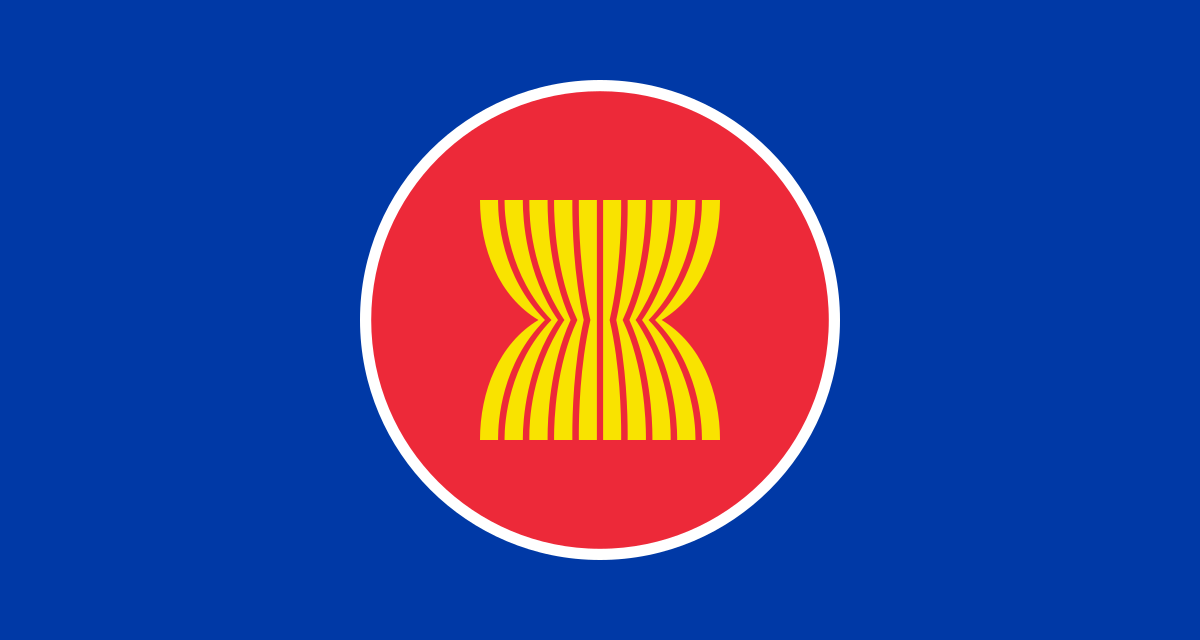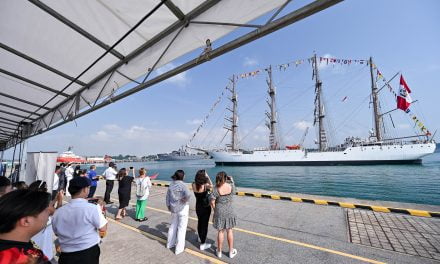The Association of Southeast Asian Nations, where blue represents peace and stability; red depicts courage and dynamism; white shows purity; and yellow symbolises prosperity. Image: “Flag of ASEAN” / Wikipedia.
The 42nd Association of Southeast Asian Nations Summit 2023 started on Wednesday with Indonesian President Joko Widodo holding a slew of meetings at Hotel Meruorah in Labuan Bajo, a town in Indonesia’s East Nusa Tenggara Province.
Of the topics to be tackled at the three-day ASEAN summit, the Myanmar conflict will be one of the most important, according to Dedi Dinarto, the lead Indonesia analyst at public policy advisory firm Global Counsel.
“The Myanmar conflict will remain the most concerning issue for the ASEAN member states, owing to the failure of the Five-Point Consensus since its implementation in 2021,” Dinarto told DNA on Wednesday.
In February 2021, Myanmar faced a military coup which saw the democratically elected government overthrown and replaced with a military junta.
“Myanmar has been viewed as a potential proxy for both Chinese and Russian interests in the region, and this situation could jeopardise ASEAN’s cohesiveness,” Dinarto said. China and Russia have been supplying the military junta with weapons.
However, Indonesia, which holds chairmanship of ASEAN in 2023, has peace at the top of its priority for the year.
The National Committee of Indonesia’s Chairmanship in ASEAN has said that its chairmanship of ASEAN focuses on making the region stable and peaceful, as well as the avoidance of becoming a proxy for any foreign elements.
“While Indonesia and other member states are unlikely to find any near-term solution to put an end to the crisis in Myanmar, they are expected to put more pressure on junta leader Min Aung Hlaing and other top officials,” Dinarto said.
Another topic for discussion will be Timor Leste’s entry into ASEAN.
Currently, ASEAN is a political and economic union of 10 member states in Southeast Asia. Members include Indonesia, Malaysia, the Philippines, Singapore, Thailand and Vietnam.
“In order to obtain full membership in ASEAN, Timor Leste must meet all of the criteria outlined in the roadmap adopted on the first day of the ASEAN Summit,” Dinarto said.
“These include completing all legal obligations, outlining its financial contribution to the organisation, and improving the quality of its state apparatus. However, negotiating multiple trade agreements with other member states will likely be a huge undertaking for Timor Leste before it can deserve a full-fledged ASEAN membership.”
Timor Leste Prime Minister Taur Matan Ruak said Wednesday, at his ASEAN summit debut, that the country is on track to meet the requirements of becoming a member state.
“We have made the necessary steps to build the essential infrastructure and create the conditions that the agreed roadmap asks of. We believe we are on the right track,” he said.
Although invited to the summit, Ruak is there as an observer and not as a full member. His attendance is significant because it is the first time in history that Timor Leste has featured at an ASEAN summit and has reaffirmed Indonesia’s support for the country to join as a fully-fledged member.
Lastly, further integration of ASEAN member states’ economies will be one of the inter-governmental organisation’s most tangible outcomes, Dinarto said.
ASEAN members on Wednesday adopted a declaration on advancing regional payment connectivity and promoting local currency transactions.
“[This] roadmap will help member states strengthen regional economic integration, while also spurring intra-ASEAN cross-border transactions through initiatives such as QR code payment linkages, real-time fund transfers, and local currency settlement,” Dinarto said.
In March, Bank Indonesia Governor Perry Warjiyo said that domestic instant payment systems will be a necessary condition for the integration of cross-border payments.
Warjiyo, who was speaking at the 2023 ASEAN Finance Ministers & Central Bank Governors Meeting, noted that half of ASEAN members have instant payment systems in place, with others soon to follow.
Indonesia, Malaysia, the Philippines, Singapore, and Thailand – also known as the ASEAN 5 – have instant payment systems set up, with Vietnam soon to follow.
Cross border payments will help facilitate trade between the countries, support tourism in the region and increase financial inclusion to those in more remote areas.
Indonesia is in a strong position to lead ASEAN as far as developing the region’s digital economy goes, with digital economy is projected to reach USD77 billion in 2022.







